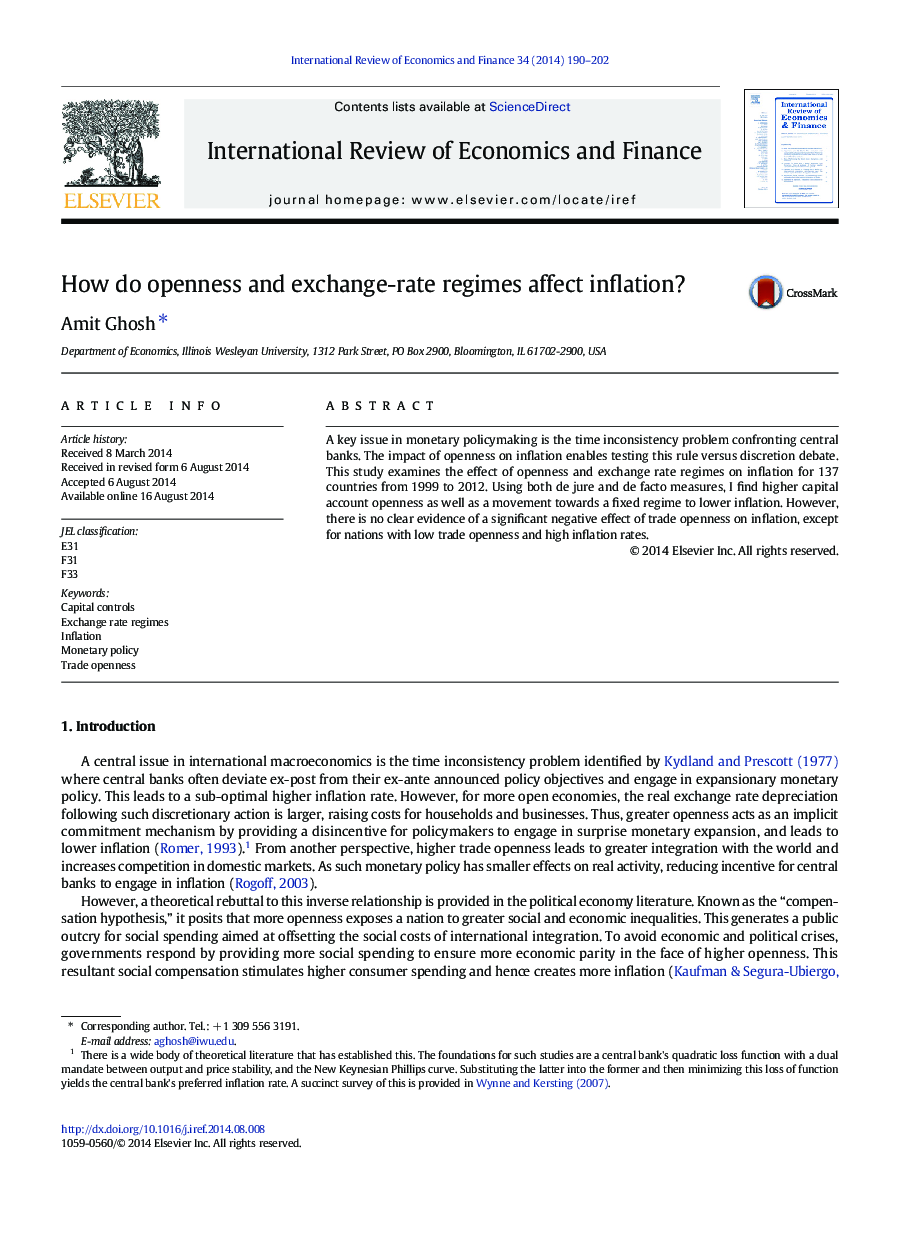| Article ID | Journal | Published Year | Pages | File Type |
|---|---|---|---|---|
| 5083593 | International Review of Economics & Finance | 2014 | 13 Pages |
â¢Creates de jure & de facto measures of exchange rate regimes and capital opennessâ¢Employs several econometric models and disaggregated analysis across sub-groupsâ¢Higher capital openness and a movement towards a fixed regime lower inflationâ¢There is no clear evidence of a significant negative effect of trade openness on inflation.â¢Trade openness lowers inflation for high-inflation and lowly trade-open nations.
A key issue in monetary policymaking is the time inconsistency problem confronting central banks. The impact of openness on inflation enables testing this rule versus discretion debate. This study examines the effect of openness and exchange rate regimes on inflation for 137 countries from 1999 to 2012. Using both de jure and de facto measures, I find higher capital account openness as well as a movement towards a fixed regime to lower inflation. However, there is no clear evidence of a significant negative effect of trade openness on inflation, except for nations with low trade openness and high inflation rates.
